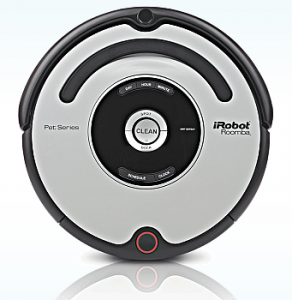
Last week I attended a panel hosted by U.S. Senator Scott Brown on access to capital for small businesses, and one of the panelists was iRobot CEO Colin Angle. One thing Angle talked about was the importance of Small Business Innovation Research (SBIR) grants, through which a portion of federal R&D is contracted to small businesses, to the eventual success of his company.
Indeed, the federal government is central to iRobot not only as an early research sponsor, but as a customer. But as The New York Times reports, some of that support is at risk:
As sales of its vacuums and military robots grew, iRobot’s earnings shot up to $40 million last year from $756,000 in 2008, and its stock surged to $38 a share from $7. But with pressure mounting for budget cuts at the Pentagon, Mr. Angle told analysts last month that the company’s military sales could drop by as much as 20 percent this year, and the stock quickly tumbled to $25 to $26 a share.
As we recently wrote, planned federal budget cuts, focused largely on defense, would have a strongly negative impact on Massachusetts’ innovation sectors.
For iRobot, the key to success in a coming age of federal austerity is to diversify. In addition to its military line of robots, the company has a strong consumer branch, with products like the Roomba vacuum cleaner. And it is starting to expand into healthcare applications as the Times notes, and as we reported a few weeks back.
It’s smart of iRobot to diversify, but we also need to be careful about how changes to the budget impact innovation. R&D is generally a very productive use of government funds, and through SBIR grants a portion of it directly benefits small enterprises. The last thing the economy needs is to cut government spending in a way that impedes innovation.
